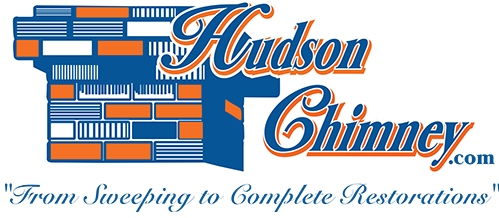by Mark Hudson | Jan 16, 2019 | Firebox Repairs
The chimney system is made up of many chambers, assemblies, units or appliances, and connections, and many refractory materials hold the heat in through all these parts and spaces. The firebox is the space which endures the most abuse and is often paid the least attention. The firebox is the fireplace itself–the space that holds the fire and endures the most heat for the longest periods of time. In order to do the job correctly and safely, the firebox should be constructed specifically for this workload, and maintained regularly.
Damage to the Firebox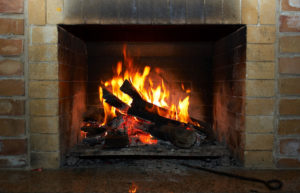
If the firebox becomes damaged, it can mean life or death. Your home is made up of wood beneath wall coverings and floors and ceilings. Behind your firebox is some type of building material, and it’s most likely flammable. Even beams and walls with proper clearance can become brittle and weak when exposed to high temperatures over a fair amount of time. This puts your home at risk for fire as well as structural damage. Basically, if your firebox is damaged, have it repaired right away. Have it serviced on a regular basis to prevent serious damage. Call in the professionals. If you don’t schedule services with chimney professionals on a routine basis, you will have a very unexpected visit from the fire protection district in your city, and it will be about saving your life and your home when a little damage turns to disaster.
Common Firebox Damage
As often as you look into your fireplace to light a fire, you should notice damage to the firebox. The most common cause of firebox damage is water damage, but there are other causes, preventable and treatable.
Water Damage – Signs of water damage in the firebox include stains on the masonry, cracks or gaps in the masonry, vegetation growth, rusted doors, and metal components, and odors in the fireplace that indicate moisture, mold, and mildew.
Improper Installation/Construction – When the firebox isn’t constructed of proper refractory materials strong enough to withstand the extreme temperature of your fire, the masonry will become cracked and gaps will appear. You may even find pieces of mortar on the floor of the firebox. Smoke stains on the walls of the firebox may also be a construction issue, or from the fuel you’re burning. Be sure you’re only burning properly seasoned firewood in your fireplace.
Debris in the Fireplace – If your cap is dislodged, the firebox can be damaged by falling debris or even animals nesting in the system. They can scratch up the chimney interior, damaging masonry and leaving flammable materials behind.
Basically, any sign that your system isn’t working properly means your next call should be to a certified chimney professional. Only the professionals can properly repair and rebuild a firebox to bring comfort and safety back to your home.
Jacksonville’s Trusted Experts
For more than 30 years, Jacksonville homeowners have trusted Hudson Chimney with their homes. We specialize in masonry, and our masons use firebricks and refractory mortar to get the job done right. Your firebox will be safe for use, whether you use your fire daily or only periodically.
Call Hudson Chimney at 904-282-4159 and have your firebox assessed and repaired now.
by Mark Hudson | Jan 10, 2016 | Water Damage And Chimneys, Winter Maintenance
Here in the Jacksonville, Florida area, we are fortunate to enjoy moderate winters, but even though we do not have to deal with much ice and snow, we do have quite a bit of rain during this season. As we have mentioned before, the Chimney Safety Institute of America (CSIA) has named water as the biggest enemy of masonry chimneys. Water from rainfall can cause quite a bit of expensive damage to your chimney, including the collapse of its structure. Hudson Chimney has been repairing leaky chimneys over the past 30 years, and we have seen some truly horrible damage done to the bricks and mortar of chimneys. Not only do we fix chimney leaks, but we also offer a few preventive services to keep water out of chimneys. We are here to help you get your chimney ready for a wet winter so you can avoid expensive chimney repairs from water damage.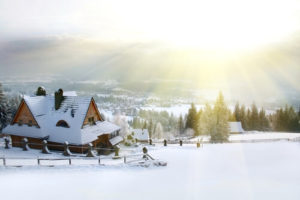
Chimney Cap Installation
An essential component of a chimney and venting system, a chimney cap keeps water from rain and melted snow out of your chimney. Without a cap, your chimney is a big hole on the top of your house. You would never leave your doors and windows open during a rainstorm, would you? Hudson Chimney can help you pick out the perfect chimney cap and professionally install it to protect your chimney from water penetration. Not only will a chimney cap keep water out of your chimney, but it will also prevent birds and animals from making a home out of your chimney. Chimney caps also keep sparks from jumping out of the top of a chimney that can ignite an accidental fire, and some types of caps can improve chimney draft problems.
Flashing
Consisting of metal sheeting, flashing wraps around the base of the chimney to keep water from entering at the point of where the chimney meets the roof. Our CSIA-certified chimney technicians will take precise measurements of your chimney to create a flashing system to protect your chimney from water penetration. We also can make repairs if your existing flashing system is damaged.
Waterproofing
To create a barrier against water penetration, Hudson Chimney provides waterproofing services. We feel that waterproofing is one of the best ways to prolong the life of your chimney. Our chimney technicians will start this service by cleaning the exterior of your chimney and then apply a layer of ChimneySaver’s Water Repellant, a 100% vapor permeable formula. This means no water will be able to penetrate into the bricks and mortar of your chimney, but any water vapors already trapped inside these masonry materials will be able to escape.
Prevention is always easier and less expensive than repairing damage. Contact us at Hudson Chimney to make an appointment for us to get your chimney ready for the wet winter.
by Mark Hudson | Dec 13, 2015 | Water Damage And Chimneys
Since your chimney extends from your roof, it is exposed to all of the elements of weather, including rain and snow. While masonry chimneys are built to last the lifetime of a house, this constant exposure to water from rain and melted snow can cause damage and deterioration to a chimney, especially if it is neglected. The Chimney Safety Institute of America (CSIA) claims that water is the biggest enemy of a masonry chimney and recommends regular maintenance to prevent expensive repairs due to water penetration damage and deterioration. Hudson Chimney would like to tell you more about how water damages your chimney and how we can help prevent this damage and deterioration.
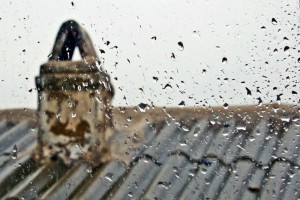
How can water damage my chimney?
According to the CSIA, all of the masonry materials that are used to build a chimney can suffer from accelerated damage after being exposed to water for a long period of time. Water causes the bricks and mortar to erode, and during the winter when the temperature drops below freezing, any water that has been absorbed into the bricks and mortar will freeze and expand. When the weather warms up, this water will thaw and cause the masonry materials to crack and break apart. This type of damage is also known as spalling, and if left unrepaired, it can lead to bricks and pieces of mortar falling from the chimney as well as the collapse of the entire structure. If water leaks into a chimney, it can also cause rusting damage to the liner, damper, and other metal components, and it can even damage the interior of your home by staining ceilings and walls.
How can Hudson Chimney protect my chimney from water damage?
Our CSIA-certified chimney technicians have several ways to prevent water penetration of your chimney: chimney caps, flashing, and waterproofing.
Called the least expensive way to prevent water penetration of a chimney, a chimney cap keeps water from even entering into your chimney. We have several different types of caps, and our chimney experts can help you find the perfect cap for your chimney and install the cap to completely cover the opening. Chimney caps have other benefits as well, including keeping birds and animals out of the chimney and preventing hot embers and sparks from jumping out of the chimney to ignite an accidental fire. We also have chimney caps that can help improve the draft in your chimney if you have problems with backdrafting.
Consisting of pieces of metal, flashing wraps around your chimney where it meets the roof to keep water from getting in at that point. In our years of working on chimneys, we have seen inadequate flashing systems that are coming apart and actually let water enter into the chimney. We construct customized flashing systems to completely protect your chimney from water penetration. We also work with state-licensed roofers to ensure the flashing fits correctly along the roof.
Using a 100% vapor permeable formula, our chimney technicians can waterproof your chimney by applying a coat of this formula to your entire chimney. We use ChimneySaver products that are designed especially for chimneys. This formula provides a barrier on your masonry chimney that keeps water from leaking into the bricks and mortar but allows fumes and vapors to easily escape so that they do not become trapped to cause further damage.
Protect your chimney from water damage this winter. Contact us at Hudson Chimney to schedule an appointment for one of our water penetration prevention services.
by Mark Hudson | May 8, 2015 | Chimney Leaks
Do you have a masonry chimney? If you do, you may already know that the likelihood of having a leaky chimney can be quite high. Why are masonry chimneys so likely to experience water leaks? The Chimney Safety Institute of America (CSIA) answers this question by stating that water is the biggest enemy of a masonry chimney. Every component of your chimney can possibly suffer expensive and extensive damage when water penetrates into your chimney. Stained ceilings or walls, loose bricks and chipped mortar on the exterior of your chimney, and musty or moldy odors coming from your fireplace are all signs of a leaky chimney. If you have seen any of these signs, it is crucial to contact a professional chimney company like Hudson Chimney to locate the source of the leak and make repairs so that your fireplace and chimney system can function safely and properly. But, what exactly can lead to a leaky chimney? We would like to tell you four problems that allow water to easily penetrate your chimney.
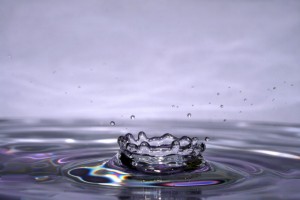
1. DAMAGED OR MISSING CHIMNEY CAPS
Chimney caps are your least expensive preventive measures against water penetration because they cover the top of your chimney. Freezing temperatures and destructive animals trying to get into your chimney can cause cracks and other damage your chimney cap. When your chimney cap is damaged (or even worse, missing completely), water from rain and melted snow can easily get into the masonry work of the interior of your chimney. Hudson Chimney offers a wide variety of chimney caps, and our certified technicians can install a custom-fitted cap to protect your chimney from water leaks.
2. DETERIORATED CHIMNEY CROWNS
Located directly beneath the chimney cap, a chimney crown is constructed from concrete and used to seal the opening of your chimney. Unfortunately, your crown could be made from the wrong or ineffective material, or it could be improperly installed. In these situations, damage and deterioration will occur sooner than later, and you will have an opening to your chimney where water can easily enter. The masons at Hudson Chimney can repair damaged chimney crowns as well as correctly install custom-made crowns to keep the water out of your chimney.
3. DAMAGED FLASHING
Flashing is sheeting made from metal that is placed between your chimney and your roof to protect this area from water leaks. Easily improperly installed, not every chimney company will the time to customize the flashing itself for a perfect fit. Our technicians will customize flashing by carefully measuring each part of your chimney and its surrounding areas on your roof so that it fits exactly and leaves no holes or cracks, which allow water penetration of your chimney.
4. WORN OUT MORTAR JOINTS
Water deteriorates the essential mortar joints that hold your chimney together and creates holes and cracks within the masonry. In the winter, water trapped in your chimney freezes and thaws, which leads to the bricks breaking and crumbling, and this will cause even more water leak problems. Fortunately, Hudson Chimney can do masonry repairs using the tuck pointing process. Once we have completed these repairs, we can apply a waterproofing treatment that will ensure that your masonry work in your chimney is protected from any water leaks in the future.
Dealing with a leaky chimney? Contact Hudson Chimney to schedule a visit from one of our certified masons to fix your water penetration problems.
by Mark Hudson | Mar 27, 2015 | Chimney Water Damage
If your home has a masonry fireplace, you might know that the Chimney Institute of America (CSIA) has named water as the biggest enemy of your chimney. Water penetration of your chimney is the biggest cause of expensive and extensive damage to the interior and the exterior of your home. Keeping water out of your chimney is the essential key to prevent the deterioration of the entire structure. At Hudson Chimney, our CSIA-certified technicians are well aware of the damage water can do to a masonry chimney, and we can find the leak, repair the damage, and then prevent further water penetration of your chimney. Often asked by our customers how water can be such a big problem, we would like to share three ways water leaks can do lots of damage to a masonry chimney.
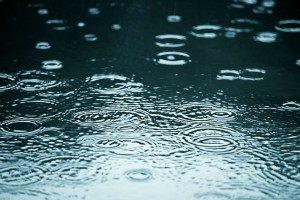
1. Water leaks can cause brick and mortar spalling, which can lead to structural damage.
The exterior bricks and mortar of your chimney suffer a great deal of water exposure, and this water will penetrate into the materials, which causes them to erode. When this trapped water freezes inside your bricks and mortar, the breaking apart, cracking, and loss of masonry materials occurs when the temperatures rise and the water thaws. The expansion of the thawed water can be too much for bricks to endure, which is why they become loose and/or break off of your chimney. This phenomenon is known as spalling, and unrepaired spalling can lead to possible severe structural damage of your chimney. Additionally, water will continue to invade your chimney through the holes provided by the spalled bricks and mortar. If you ever notice loose bricks or mortar on the exterior of your chimney, contact Hudson Chimney for a chimney inspection. We will repair the damage and waterproof your chimney to prevent spalling from occurring again.
2. Water leaks can cause cracks and other deteriorations to your chimney flue liner, which can lead to carbon monoxide poisoning.
Water penetration not only affects the bricks and mortar of your chimney, but it causes damage to your interior flue liner as well. If you have a clay chimney liner, cracks will form due to water leaks, and if you have a metal chimney liner, rusting will occur from water exposure. Both of these problems can cause your liner to break apart and crack. A cracked liner can be a health hazard since your chimney liner serves to protect you and your family from the by-products of combustion, like toxic smoke and carbon monoxide, from entering your home. At Hudson Chimney, we can repair and restore clay chimney liners with HeatShield, and we can replace damaged liners with a durable stainless steel.
3. Water leaks can cause interior damage to your home, including stained walls and ceilings and mold growth.
Not only does water penetration of a masonry chimney cause many issues to the chimney itself, but a leaky chimney can also stain the ceilings and walls of the room where your fireplace is located. If you find water leak stains in your fireplace room, you should also consider the possibility of mold growth in the ceilings, walls, fireplace, and chimney. Contact Hudson Chimney as soon as possible if you ever see this sort of water penetration damage.
If you have more questions on what types of damage water penetration can do to a masonry chimney, contact Hudson Chimney today. We are happy to help you repair and prevent this kind of damage to your fireplace and chimney.

